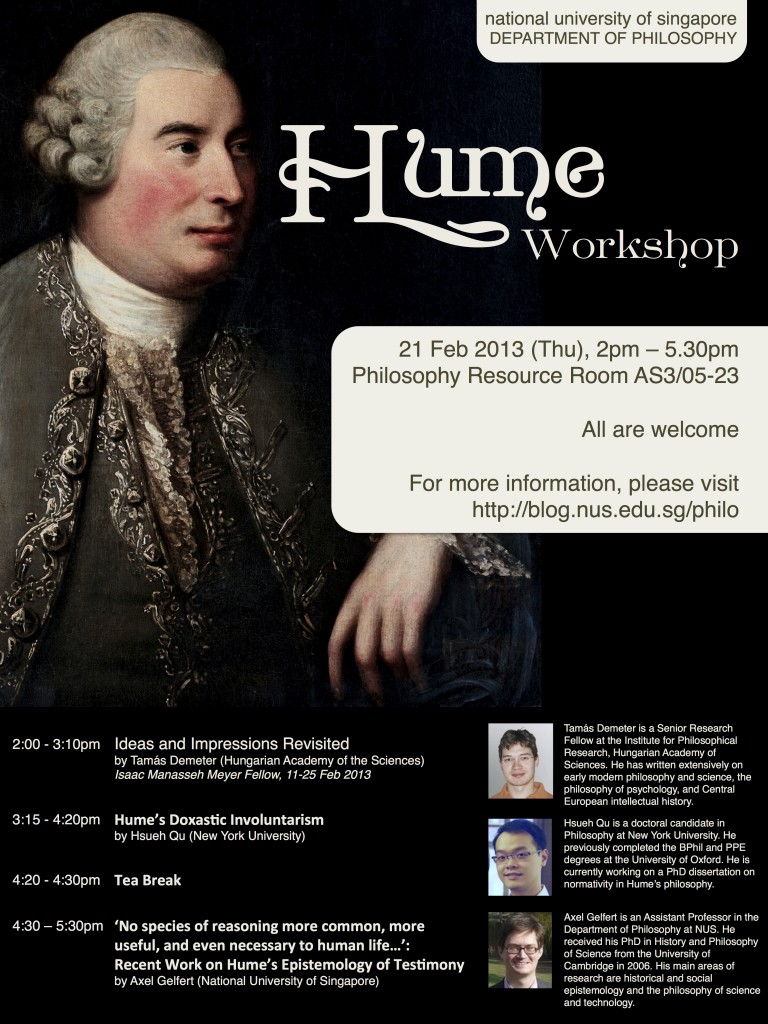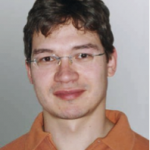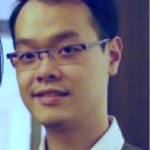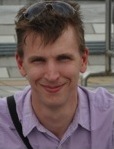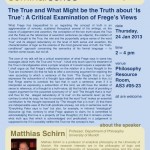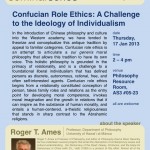We are happy to announce that the Department of Philosophy has new undergraduate modules to offer! We have also made some changes to a few existing modules!
Here are the updates:
Changes to Modules
PH2110/GEM2006 Logic
New description: An introduction to classical logic. The first half of the course introduces propositional logic, using the techniques of truth-tables and trees. The second half of the course extends the use of trees to predicate logic and basic modal logic. Emphasis is placed on applying the techniques to philosophical arguments, and on philosophical questions raised by the study of logic.
PH4212 Issues in Philosophy of Mind (Module Title Changed)
Description: This module will explore in depth an advanced topic in the philosophy of mind. Possible topics are the unity of consciousness, the relationship between consciousness and time and the relationship between phenomenology and intentionality. The course may also focus on alternative conceptions of the mind to physicalism, such as dualism, panpsychism, or phenomenalism, issues from the philosophy of perception, such as the problems of illusion, hallucination, and the inverted spectra, or issues from philosophical psychology and cognitive science, such as the modularity of mind, the nature of tacit knowledge, or the relationship between neural states and mental states.
PH4211 Issues in Epistemology (Module Title Changed)
Description: This module will explore an advanced topic in epistemology in depth. Some possible topics are the problem of scepticism, including realist and anti-realist responses to it, the nature of certainty and the relationship of knowledge to chance and credence, the internalism versus externalism debate about the nature of knowledge and justification, and the definability of knowledge in terms of truth, belief, justification and their cognates. The module may also explore a problem from formal epistemology, such as the lottery paradox, the problem of logical omniscience, or probabilistic approaches to the problem of induction.
New Modules
PH2111/GEK2048 Effective Reasoning
Description: What is good reasoning? We will try to answer this question by studying the mechanics of reasoning. Students will learn what an argument is, what the difference between validity and soundness is, and what it means to say that an argument is valid in virtue of its form. They will also be introduced to various strategies and pitfalls in reasoning. In addition, to hone their analytical skills, students will be given arguments—drawn from philosophy and other areas—to unpack and evaluate. It is hoped that in the process of learning what counts as good reasoning, one will become a better reasoner.
PH4240 Issus in Metaphysics
Description: This module will explore in depth some advanced topics in metaphysics. Some possible topics include whether similar things have universals in common, whether time flows, whether past and future exist, whether a whole is something over and above the sum of its parts, whether chance is objective, whether there are other possible worlds, and whether numbers, gods, or chairs and tables exist.
PH4241 Issues in Philosophical Logic
Description: This module will explore in depth some advanced topics in philosophical logic. Possible topics include extensions to classical logic, such as modal logics and higher order logics, non-classical logics, such as intuitionistic, many-valued and relevant logics, or philosophical questions about logic.
PH4242 Issues in Philosophy of Language
Description: This module will explore in depth some advanced topics in philosophy of language. Possible topics are the nature of truth, Dummettian anti-realism, contextualism, relativism, or two-dimensionalism. We may also consider the application of philosophy of language to issues in other areas of philosophy, such as the debate between cognitivists and non-cognitivists in metaethics, or the question of whether metaphysical disputes are merely verbal.
PH4243 Issues in Aesthetics
Description: This module will explore in depth an advanced topic in aesthetics. Possible topics are the ontology of art, the nature of the imagination, the definition of art, subjectivism about beauty, relativism about taste, or the appreciation of nature. Alternatively, we may consider the aesthetics of a particular artform, such as music, film, fiction, painting or dance, or of a particular philosopher, such as Immanuel Kant or Nelson Goodman. Finally, we may consider issues that arise at the intersection of aesthetics and other areas in philosophy, such as the debate over fictionalism in metaphysics.
To view the entire list of modules offered by the Department of Philosophy, click here!
 The very notion of ‘Infinite Utility’ has always been eclipsed with dubious philosophical credentials. The term ‘Infinite’ is extremely loaded and therefore, one is generally advised to use the word with enough care and caution. In this paper, I shall try to examine the driving force behind the motivation for exemplary human excellence. Human and philosophical history has shown us time and again that the force that drives an agent on the path of extra-ordinary excellence carries a sort of resolve that is beyond human comprehension. What is the motivation that makes Jesus seek divine pardon for his adversaries at the time of his crucification? How can an Ibn Arabi at the face of the hard-coded canon laws of Islam, spread the message of supreme love, consistently throughout his life, unafraid of the likely violent repercussions? What motivates Buddha to be uniquely consistent throughout his life with his exemplary practice and message of supreme human conduct? What is driving this motivation? Is there a case to examine whether at the core of such motivation does lie the concept of ‘Infinite Utility’? Using the analytic techniques of decision theory, I would argue that there possibly remains a case prima facie.
The very notion of ‘Infinite Utility’ has always been eclipsed with dubious philosophical credentials. The term ‘Infinite’ is extremely loaded and therefore, one is generally advised to use the word with enough care and caution. In this paper, I shall try to examine the driving force behind the motivation for exemplary human excellence. Human and philosophical history has shown us time and again that the force that drives an agent on the path of extra-ordinary excellence carries a sort of resolve that is beyond human comprehension. What is the motivation that makes Jesus seek divine pardon for his adversaries at the time of his crucification? How can an Ibn Arabi at the face of the hard-coded canon laws of Islam, spread the message of supreme love, consistently throughout his life, unafraid of the likely violent repercussions? What motivates Buddha to be uniquely consistent throughout his life with his exemplary practice and message of supreme human conduct? What is driving this motivation? Is there a case to examine whether at the core of such motivation does lie the concept of ‘Infinite Utility’? Using the analytic techniques of decision theory, I would argue that there possibly remains a case prima facie. Mitradutta Mohapatra holds an MA from University of Mumbai and he is exposed to both Indian and Western philosophical traditions. He is keen to look at various aspects of moral philosophy and more particularly, his interest lies in ‘applied ethics’. His current research interest at NUS is to have a closer look at the evolution of compliance governance in the contemporary business world and examine its compatibility with the ethical theories and the traditional tenets of human morality.
Mitradutta Mohapatra holds an MA from University of Mumbai and he is exposed to both Indian and Western philosophical traditions. He is keen to look at various aspects of moral philosophy and more particularly, his interest lies in ‘applied ethics’. His current research interest at NUS is to have a closer look at the evolution of compliance governance in the contemporary business world and examine its compatibility with the ethical theories and the traditional tenets of human morality.